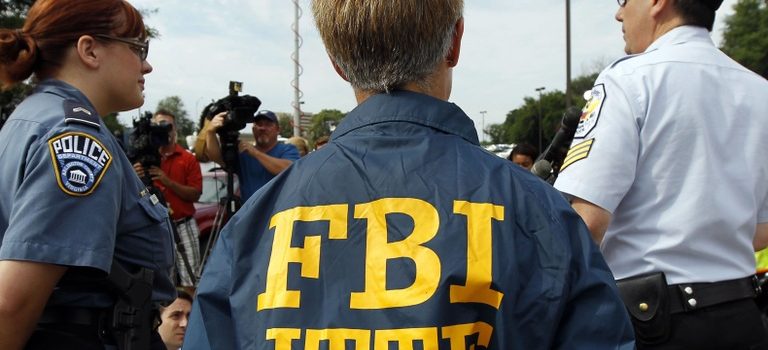Terrorist Related Communications to Law Enforcement: The Good, The Good, the Bad, and the Ugly
Al Reshaw leading esteemed panel of experts
Retired Police Chief, Retired Naval Intelligence Officer
Thursday, Oct. 29, 2020 at 09:00 am Pacific Time (US and Canada) via Zoom
If you are an NSF member, you will receive an invitation by email to this online event. Please check your email and RSVP your attendance. If you would like to attend this meeting, become a member today!
As the weather turns cooler and beautiful autumn days abound, NSF hopes you are continuing to stay safe from COVID and plan to get a flu shot! If you missed any of our recent Zoom programs, please check out the recordings posted on our website. You may also be interested in our upcoming commentaries on the situation in Afghanistan. They should be posted in the next week. To watch the program videos, read commentaries and learn about our upcoming programs and events and go to our website. Scroll down on the landing page to get to our video links): NSF Website
Program details for our upcoming program:
In mid-September Dr. Elizabeth Yates and Sheehan Kane from the University of Maryland, National Consortium for the Study of Terrorism and Responses to Terrorism (START), presented a very interesting talk about trends in domestic extremism in the United States. Dr. Yates and Sheehan Kane introduced and discussed findings from two major datasets tracking extremist radicalization in the U.S. PIRUS (Profiles of Individual Radicalization in the United States), and BIAS (Bias Incidents and Actors Study) and trends in background characteristics of extremists, changes in targets and tactics over time, as well as differences between mass casualty offenders and other extremist offenders. You can view the video from this talk on our website.
During and after that talk several NSF participants asked questions about how this type of information is used by local law enforcement and domestic intelligence agencies. Because we were not able to address these questions in detail during the presentation, we have scheduled a follow-on panel discussion with law enforcement and intelligence experts. The panel will be led by Al Reshaw, retired police chief and Naval intelligence officer. Joining Al will be Dr. Charles Russo, retired USIC Intelligence Analyst and veteran of the FBI Laboratory Division, Kevin Schaller, NSF Board member and Douglas County Deputy Sheriff, William Braniff and Mike Jensen from START. Dr. Elizabeth Yates and Sheehan Kane will also join us.
Al Reshaw will open the panel discussion with a presentation about communications to and among Federal, State and local law enforcement agencies – what works, what doesn’t and why. He will draw from many years of experience working in both intelligence and law enforcement communities with real world examples. The panel will then share experiences from different perspectives on getting operators the information they need to assess and respond to terrorist and extremist activities.
This topic and discussion are particularly timely given the coordinated arrests by FBI and State law enforcement agencies of extremist group members plotting to kidnap the Governors of Michigan and Virginia. NSF is committed to facilitating informed discussions timely and important national security topics. Please join us with your thoughts and questions for to our esteemed panel.
Remember that our Zoom webinars are open to the first 100 registrants, so please register early. If you decide that you can’t make it later please delete your registration to allow others to join.
Al Reshaw is the Chief Executive Officer of Reshaw Forensic Investigations and Consulting, providing sensitive and complex investigative services. He served as the Senior Intelligence Analyst for a Department of Homeland Security designated Nevada state fusion center. At the Federal level, Mr. Reshaw served as the Director of a Regional Threat Fusion Center for the United States Marine Corps Installations West Region (California and Arizona) and as the regions Anti-Terrorism and Force Protection Program Manager and the Operational Security (OPSEC) Program Manager. Mr. Reshaw has over 30 years of law enforcement experience in California, retiring as a Chief of Police. He managed a number of units to include Operations, Investigations, Internal Affairs, Special Weapons and Tactics, Homicide and Child Abuse. Additionally, Mr. Reshaw served 28 years as an Intelligence Officer in the United States Navy Reserve, retiring as a Commander. A graduate of the United States Naval War College, he has multiple overseas combat tours in the middle east to include the Global War on Terrorism (GWOT) campaign. Mr. Reshaw commanded several Naval Reserve Intelligence Units, and is an Anti-Terrorism/Force Protection, Homeland Security, Critical Infrastructure, and Physical Security Expert. Furthermore, he had over a decade of service with US Navy and US Army, Special Operation Forces. He has a Masters’ Degree in Project Management, a Bachelor of Science Degree in Business, and an Associate of Arts Degree in Police Science. He is married to the former Lori Stewart of Glendale California. They have four children and 10 grandchildren.


